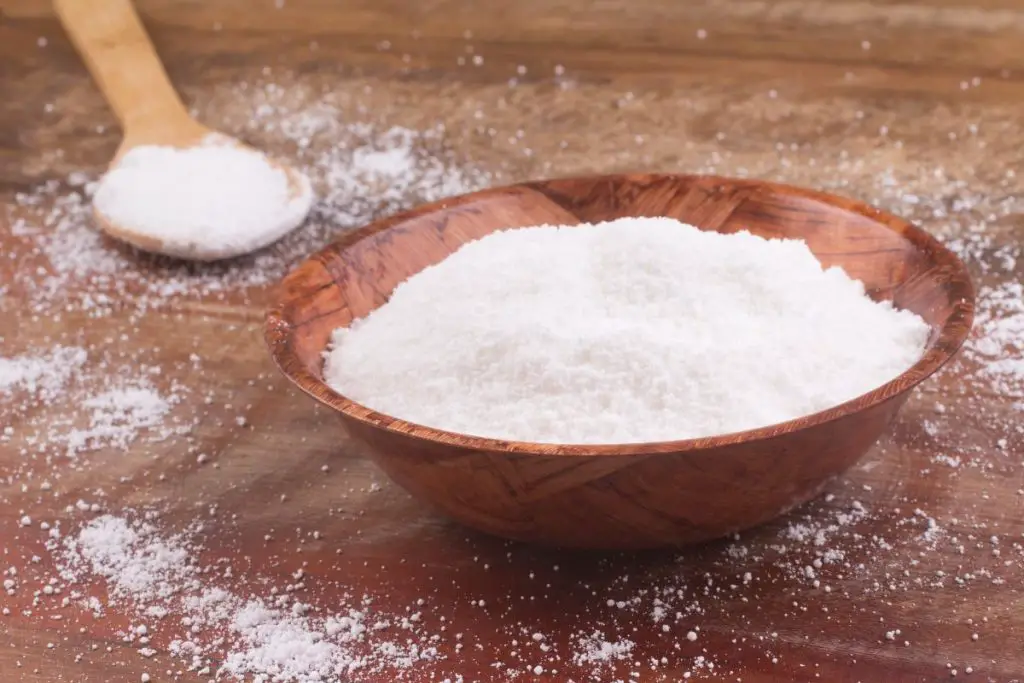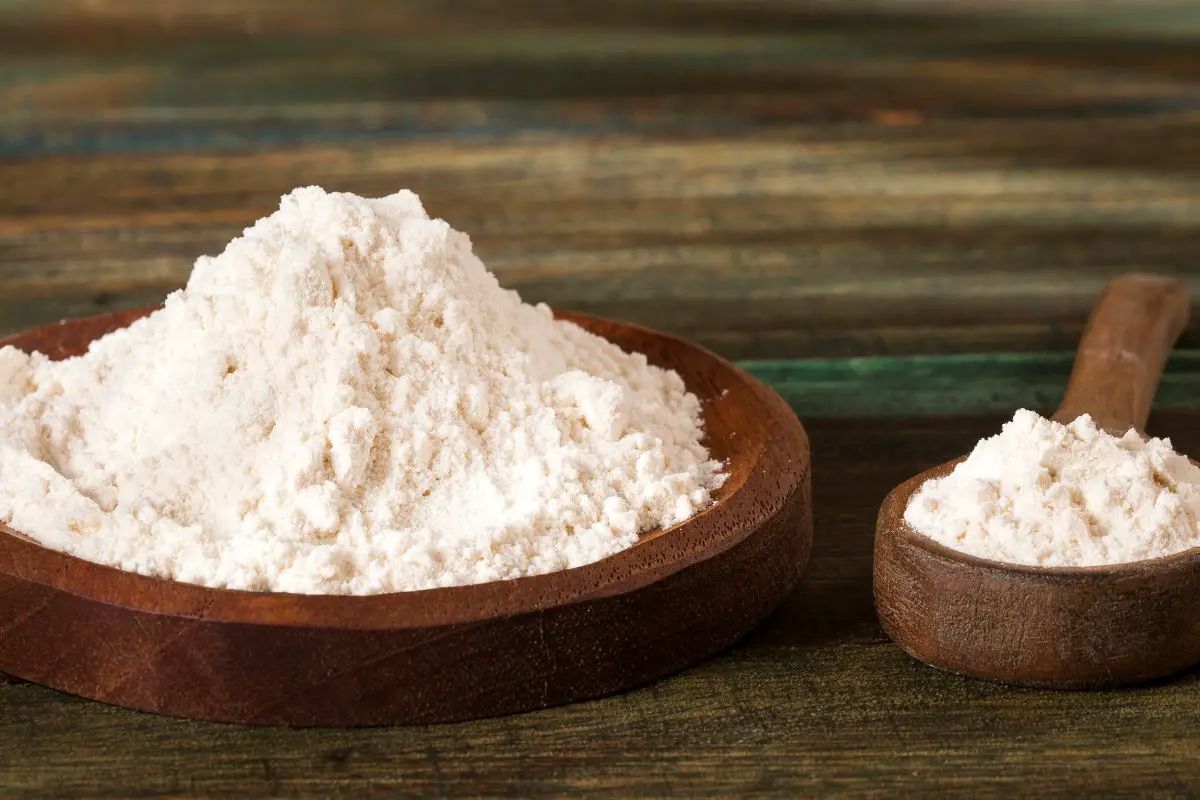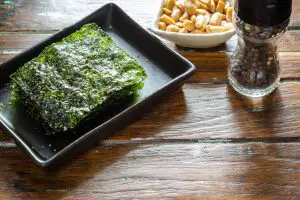If you’re on the keto diet and also love to cook or bake, one of the biggest obstacles you’ve probably come across is finding a keto-friendly flour substitute.
As you probably already know, flour is extremely high in carbohydrates and is typically also a high-calorie food, and neither of those things are great if you’re trying to eat a high-fat diet for weight loss.
One of the flour substitutes that causes a lot of confusion in the keto community is tapioca flour, so let’s take a look at whether tapioca flour is keto and everything else you should know about tapioca flour and the keto diet.
Is Tapioca Flour Keto-Approved?
The question you probably came here to find the answer to is ‘is tapioca flour keto-approved.’ The answer, unfortunately, is no.
If a food is keto-approved, or Keto Certified, it means it’s been officially identified as suitable for the ketogenic diet. This seal of approval was actually developed by The Paleo Foundation, and it’s now used as the gold standard for identifying keto-friendly foods.
Since tapioca flour isn’t keto-approved, that means it’s unsuitable for a keto diet, or a strict keto diet at least. Let’s take a look at why that is.
Why Isn’t Tapioca Flour Keto?

If you’re wondering why tapioca flour isn’t keto-friendly, the answer ultimately comes down to its carbohydrate content, which is one of the main deciding factors in determining whether any food is keto.
The main macronutrient found in tapioca flour is carbohydrates. Just ¼ of a cup of tapioca flour contains 100 calories and 26 grams of carbohydrates. That means that a relatively small serving of tapioca flour would provide over half of the average adult’s daily carb limit on a keto diet.
Not only is tapioca flour a starchy, high-carb food, but it also contains literally no fat per serving. That’s right – there’s 0 grams of fat in ¼ cup of tapioca flour. In the same serving of tapioca flour, you’ll also find 0 grams of protein, so basically, other than carbohydrates (which you’ll generally want to avoid on keto), tapioca flour provides no nutritional value. It’s even low in fiber despite being high in starch, so what you’re consuming with tapioca flour is essentially empty calories.
It’s also worth mentioning that tapioca flour is known to have a high glycemic index, meaning that it causes your insulin levels to rise quickly, raising your blood sugar in a short amount of time.
This is generally not ideal in general since it’s been shown to increase the risk of certain cancers, but if you struggle to regulate your blood sugar, high glycemic index foods are especially bad.
Keto-Friendly Tapioca Flour Alternatives
Now that we’ve established that tapioca flour isn’t keto-friendly, you may be wondering what other flour substitutes you can use that are high enough in fat and low enough in carbohydrates for a keto diet.
One of the best alternatives to tapioca flour is sunflower seed flour. Sunflower seeds contain healthy fats and contain some protein while being much lower in carbohydrates than other types of flour.
Specific brands of sunflower seed flour, like Beyond Equator, have been keto-approved, so you always know beyond a shadow of a doubt that this flour will fit into your diet. Compared to the tapioca flour nutritionals we shared earlier, ¼ cup of sunflower seed flour contains just 4 grams of carbs. Meanwhile, it will also provide you with protein, vitamin E, B vitamins, and antioxidants.
Which Diets Is Tapioca Flour Compatible With?
If you’re not yet fully committed to the keto diet, you may be able to incorporate tapioca flour into other types of diets, even if it’s only occasionally.
For example, if you decided that you wanted to eat keto for 6/7 days of the week and just eat paleo or Whole30 once a week, you could have tapioca flour on your paleo days because tapioca flour is paleo certified.
So, even though tapioca flour is not suitable for strictly keto diets, it can work on other healthy diets that are good for weight loss such as paleo.
Frequently Asked Questions
Is Tapioca Flour Anti Inflammatory?
No, tapioca flour does not contain any ingredients that provide anti-inflammatory benefits.
As we discussed earlier, tapioca flour contains a lot of starch so it’s high in carbohydrates but it provides basically no other nutritional value and contains extremely minimal amounts of minerals or vitamins, so it won’t help to destroy free radicals or reduce inflammation in your body.
Is Tapioca Flour Bad For Diabetes?
People with diabetes may not be able to have tapioca flour because it has a high glycemic index due to its high carbohydrate content which can cause blood sugar to spike quickly. This can be dangerous for some diabetic individuals.
Is Tapioca Good For Weight Loss?
Tapioca is definitely not the best food if you want to lose weight, especially if your weight loss goal involves a significant loss.
The reason tapioca flour is not good for weight loss is because it’s very high in carbohydrates, which you don’t want to consume too much of if your end goal is to lose weight.
Additionally, keto is known to be one of the most effective diets for fast weight loss, and since tapioca flour isn’t compatible with the keto diet due to its low fat and high carb content, it’s certainly not the best choice if your method of weight loss involves ketosis.
Final Thoughts
Tapioca flour is not keto because it mostly contains carbs with very few other nutrients. It doesn’t provide any fat or protein, so it doesn’t meet the criteria a food needs to be keto-approved.
If you’re looking for a keto-friendly alternative to tapioca flour, sunflower seed flour is probably your best option because it’s low carb and contains protein and other nutrients.
Although tapioca flour is not keto, it is paleo-friendly and Whole30 approved, so it’s suitable for other health-conscious diets other than keto.




